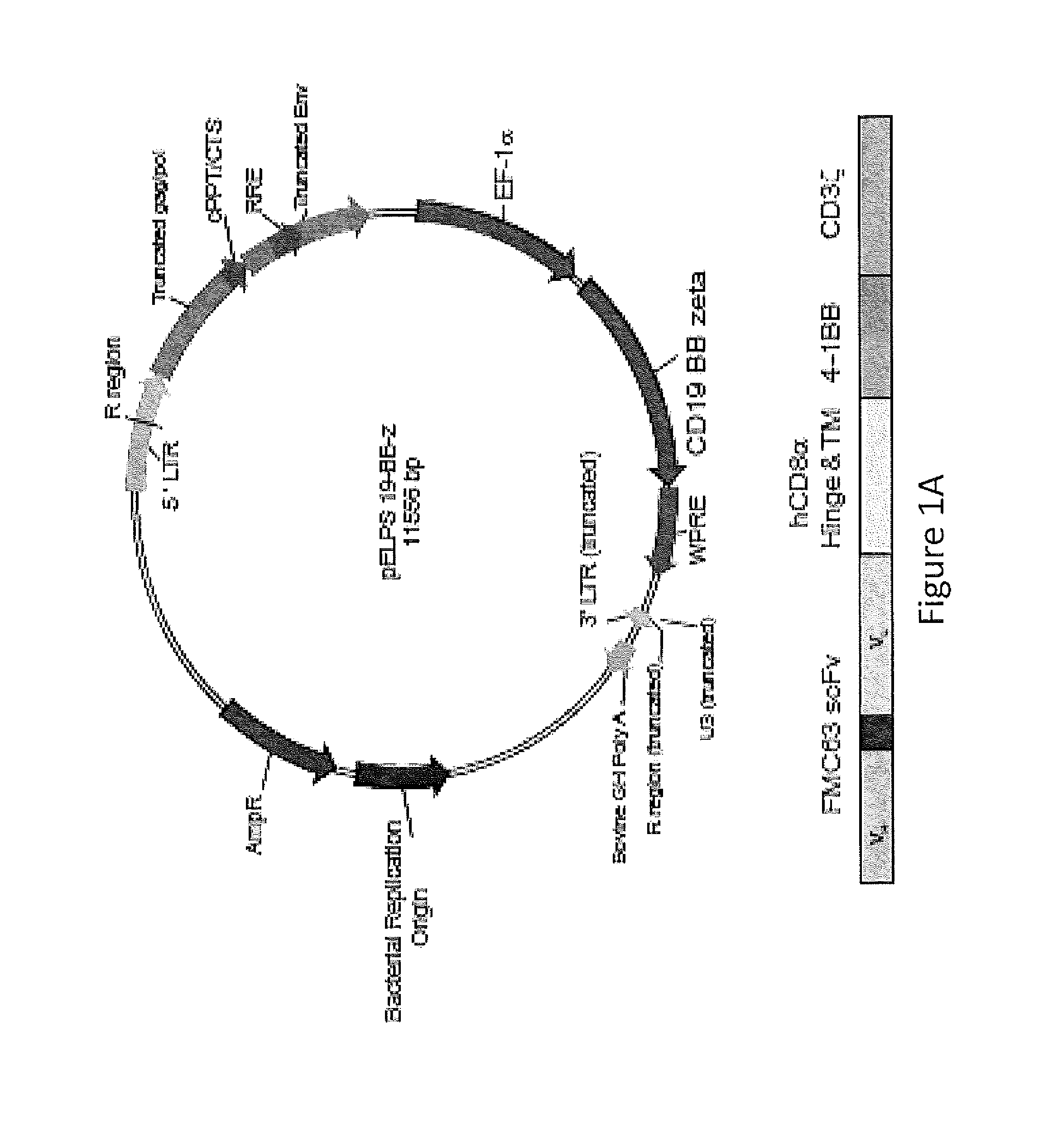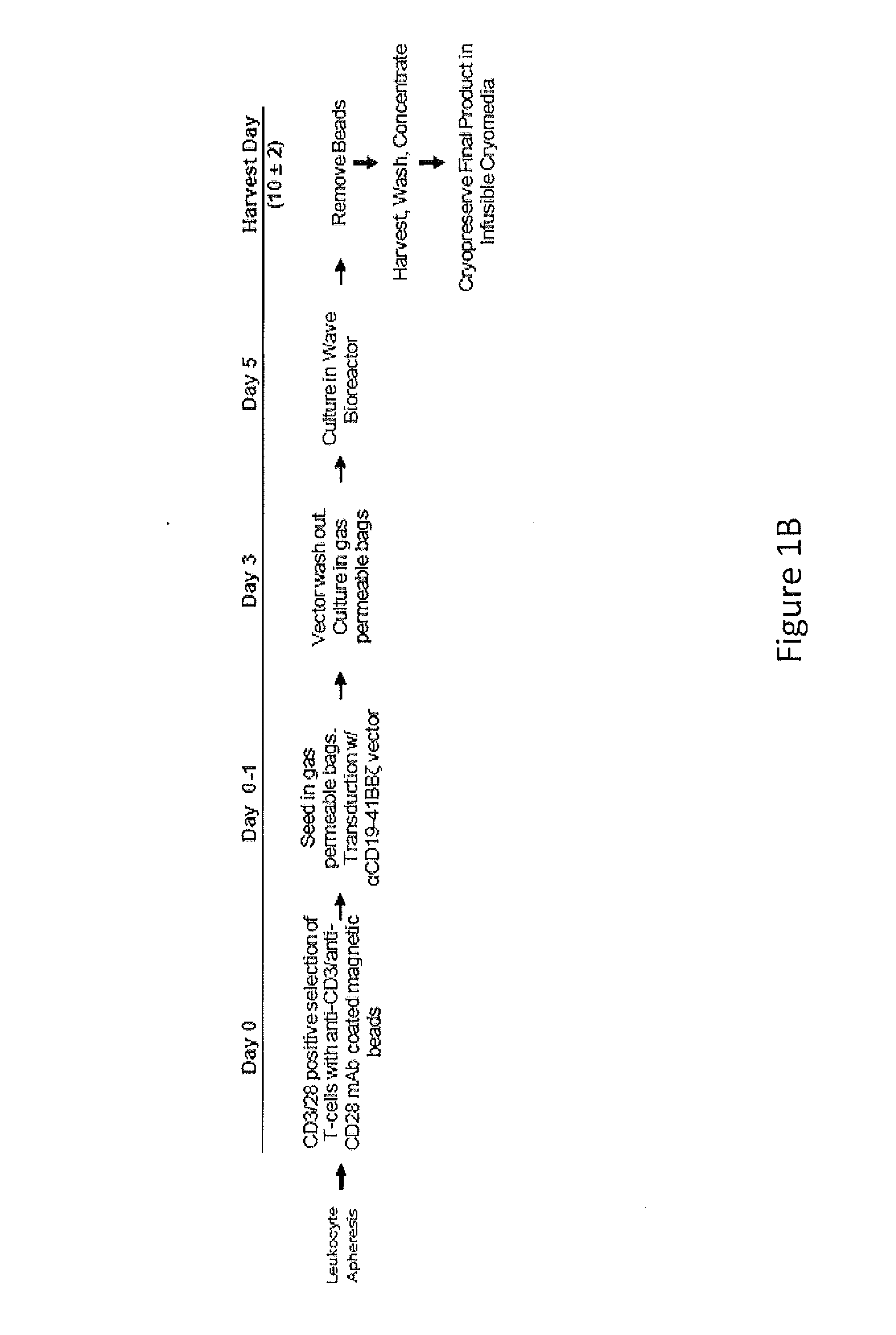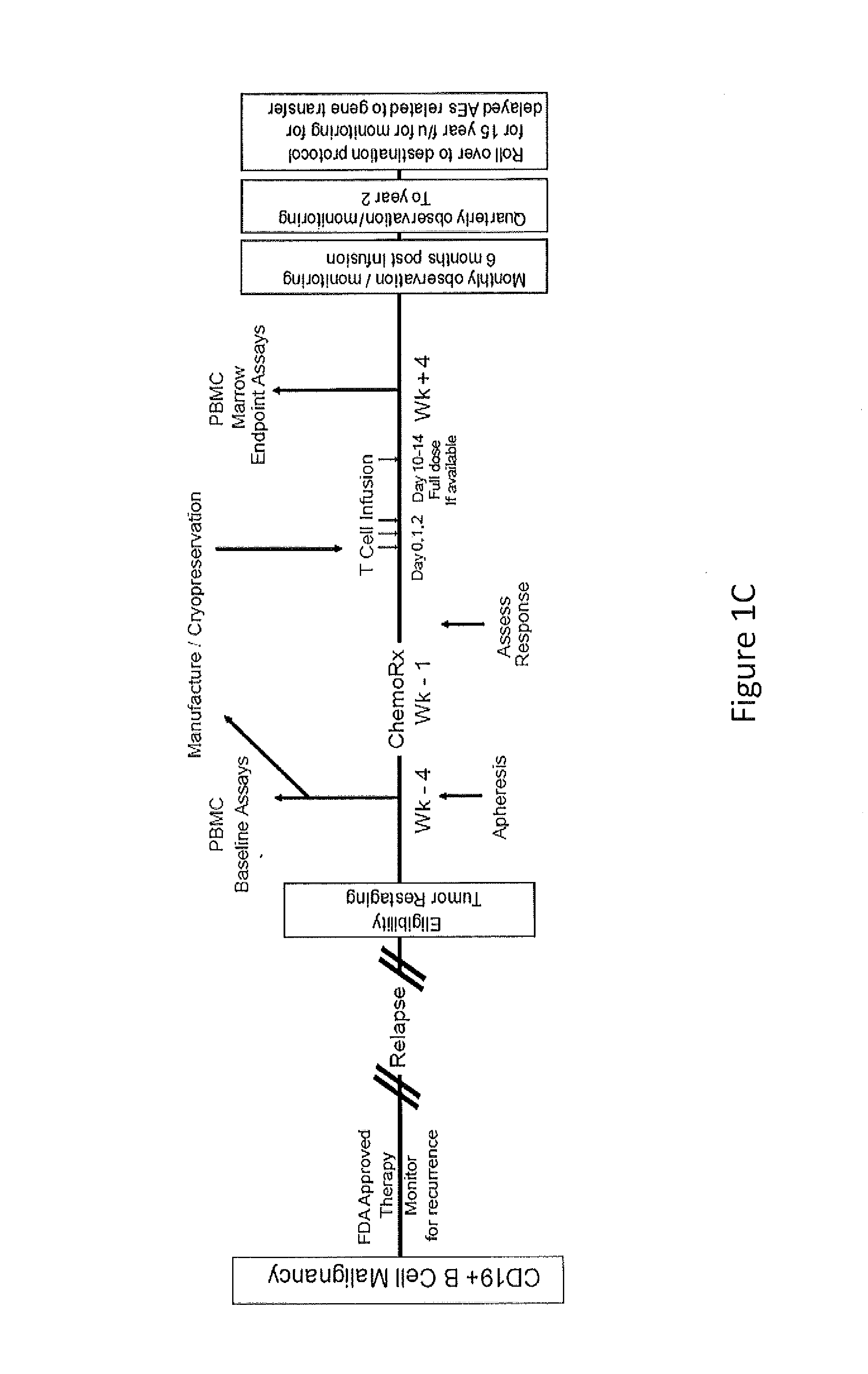Use of Chimeric Antigen Receptor-Modified T-Cells to Treat Cancer
a technology of chimeric antigen receptor and t-cells, which is applied in the field of cancer treatment using chimeric antigen receptor-modified t-cells, can solve the problems of rapid cell disappearance, disappointing clinical activity, and limited success of using genetically modified cells expressing cars to treat these types of patients, and achieve the effect of stimulating a t cell-mediated immune respons
- Summary
- Abstract
- Description
- Claims
- Application Information
AI Technical Summary
Benefits of technology
Problems solved by technology
Method used
Image
Examples
experimental examples
[0229]The invention is further described in detail by reference to the following experimental examples. These examples are provided for purposes of illustration only, and are not intended to be limiting unless otherwise specified. Thus, the invention should in no way be construed as being limited to the following examples, but rather, should be construed to encompass any and all variations which become evident as a result of the teaching provided herein.
[0230]Without further description, it is believed that one of ordinary skill in the art can, using the preceding description and the following illustrative examples, make and utilize the compounds of the present invention and practice the claimed methods. The following working examples therefore, specifically point out the preferred embodiments of the present invention, and are not to be construed as limiting in any way the remainder of the disclosure.
example 1
T Cells Expressing Chimeric Receptors Establish Memory and Potent Antitumor Effects in Patients with Advanced Leukemia
[0231]Lymphocytes engineered to express chimeric antigen receptors (CARs) have demonstrated minimal in vivo expansion and antitumor effects in previous clinical trials. The results presented herein demonstrate that that CART cells containing CD137 have potent non-cross resistant clinical activity following infusion in three of three patients treated with advanced chronic lymphocytic leukemia (CLL). The engineered T cells expanded more than a thousand-fold in vivo, trafficked to bone marrow and continued to express functional CARs at high levels for at least 6 months. On average, each infused CAR+ T cell eradicated at least 1000 CLL cells. A CD19 specific immune response was demonstrated in the blood and bone marrow, accompanied by complete remission in two of three patients. A portion of the cells persist as memory CAR+ T cells, indicating the potential of this non-M...
example 2
Chimeric Antigen Receptor-Modified T Cells in Chronic Lymphoid Leukemia
[0301]A lentiviral vector expressing a chimeric antigen receptor with specificity for the B-cell antigen CD19, coupled with CD137 (a costimulatory receptor in T cells [4-1BB]) and CD3-zeta (a signal-transduction component of the T-cell antigen receptor) signaling domains, was designed. It was observed that a low dose (approximately 1.5×105 cells per kilogram of body weight) of autologous chimeric antigen receptor-modified T cells reinfused into a patient with refractory chronic lymphocytic leukemia (CLL) expanded to a level that was more than 1000 times as high as the initial engraftment level in vivo. It was also observed that the patient exhibited delayed development of the tumor lysis syndrome and with complete remission.
[0302]Apart from the tumor lysis syndrome, the only other grade 3 / 4 toxic effect related to chimeric antigen receptor T cells was lymphopenia. Engineered cells persisted at high levels for at ...
PUM
| Property | Measurement | Unit |
|---|---|---|
| Time | aaaaa | aaaaa |
| Time | aaaaa | aaaaa |
| Time | aaaaa | aaaaa |
Abstract
Description
Claims
Application Information
 Login to View More
Login to View More - R&D
- Intellectual Property
- Life Sciences
- Materials
- Tech Scout
- Unparalleled Data Quality
- Higher Quality Content
- 60% Fewer Hallucinations
Browse by: Latest US Patents, China's latest patents, Technical Efficacy Thesaurus, Application Domain, Technology Topic, Popular Technical Reports.
© 2025 PatSnap. All rights reserved.Legal|Privacy policy|Modern Slavery Act Transparency Statement|Sitemap|About US| Contact US: help@patsnap.com



